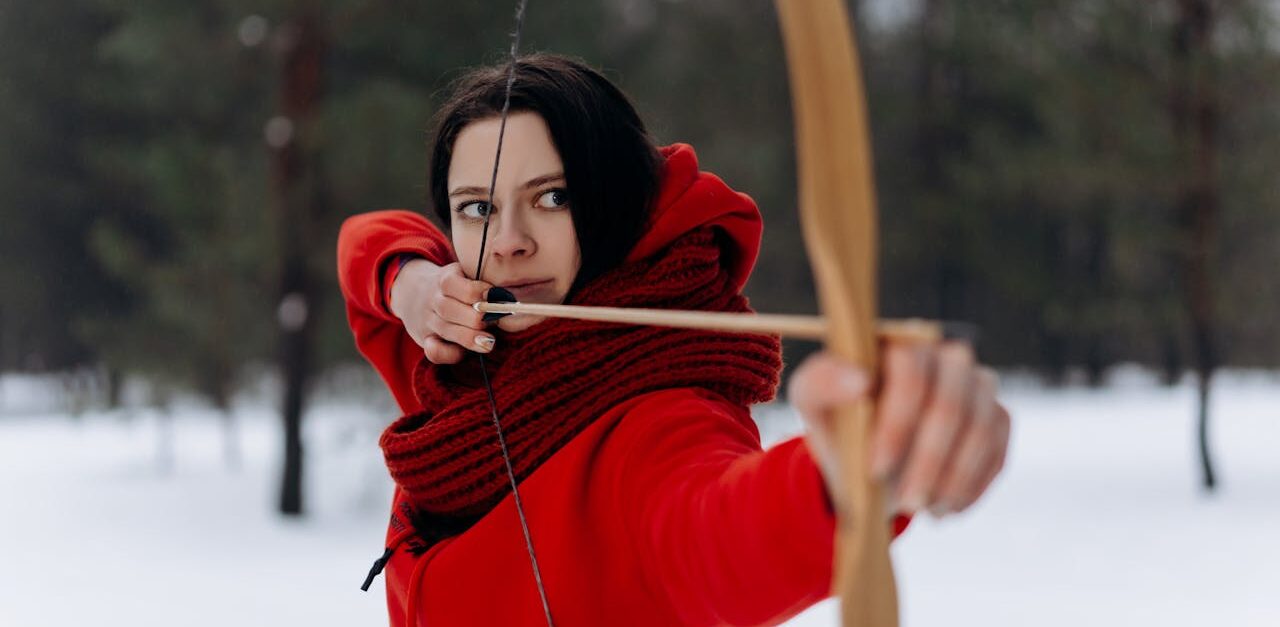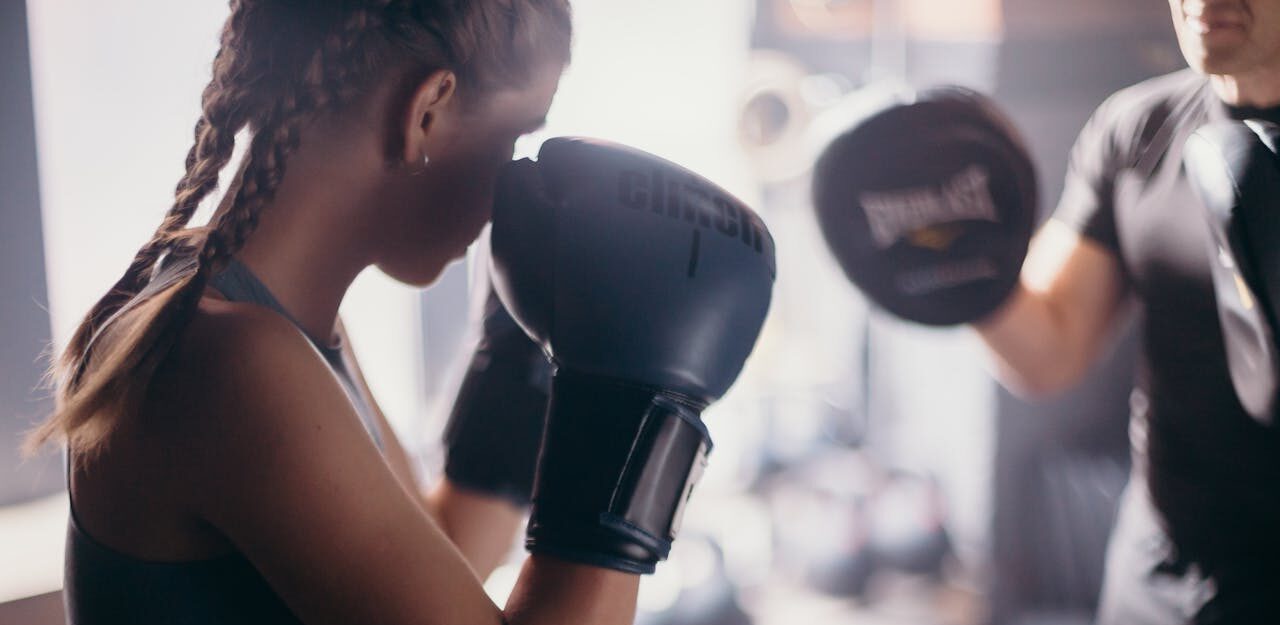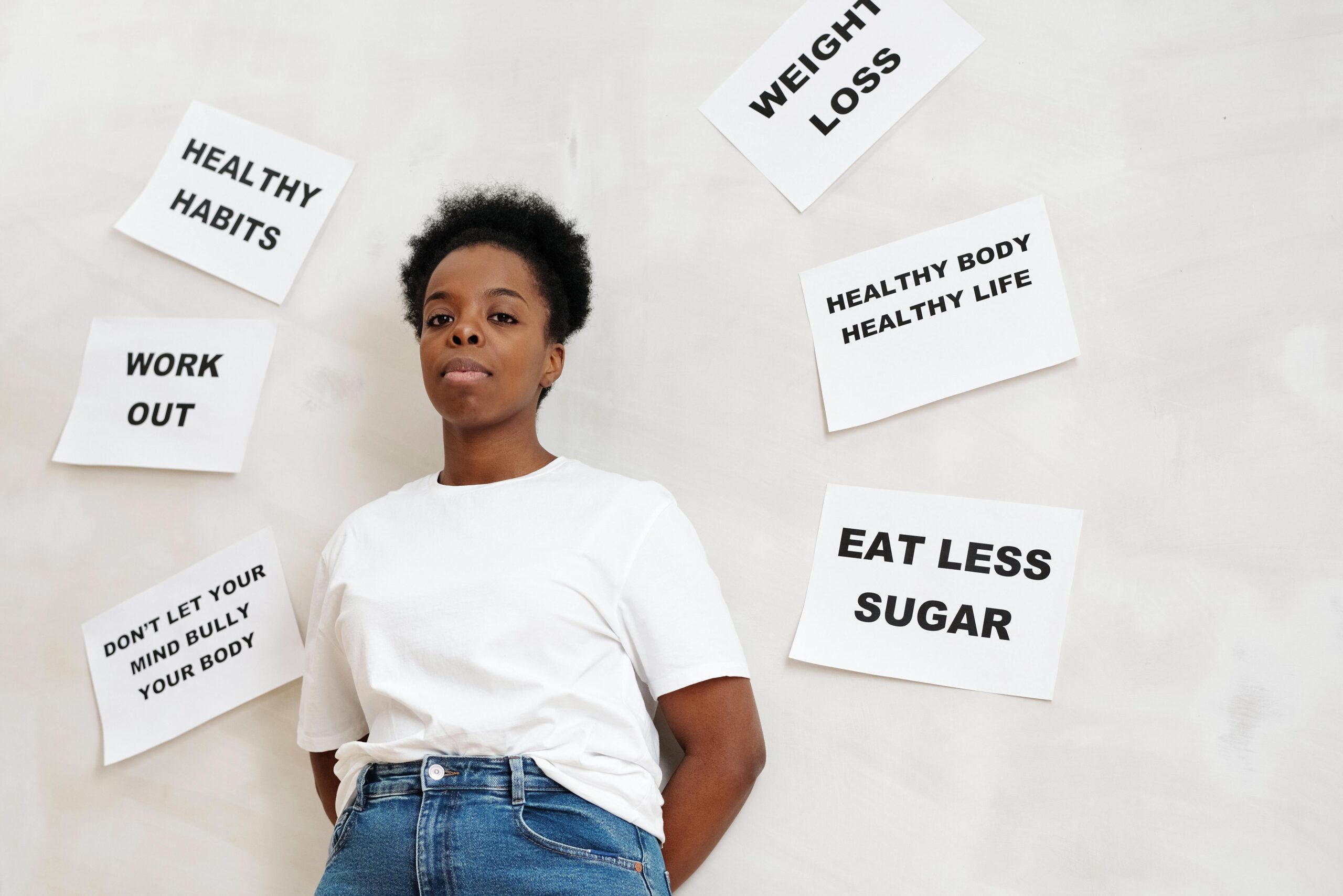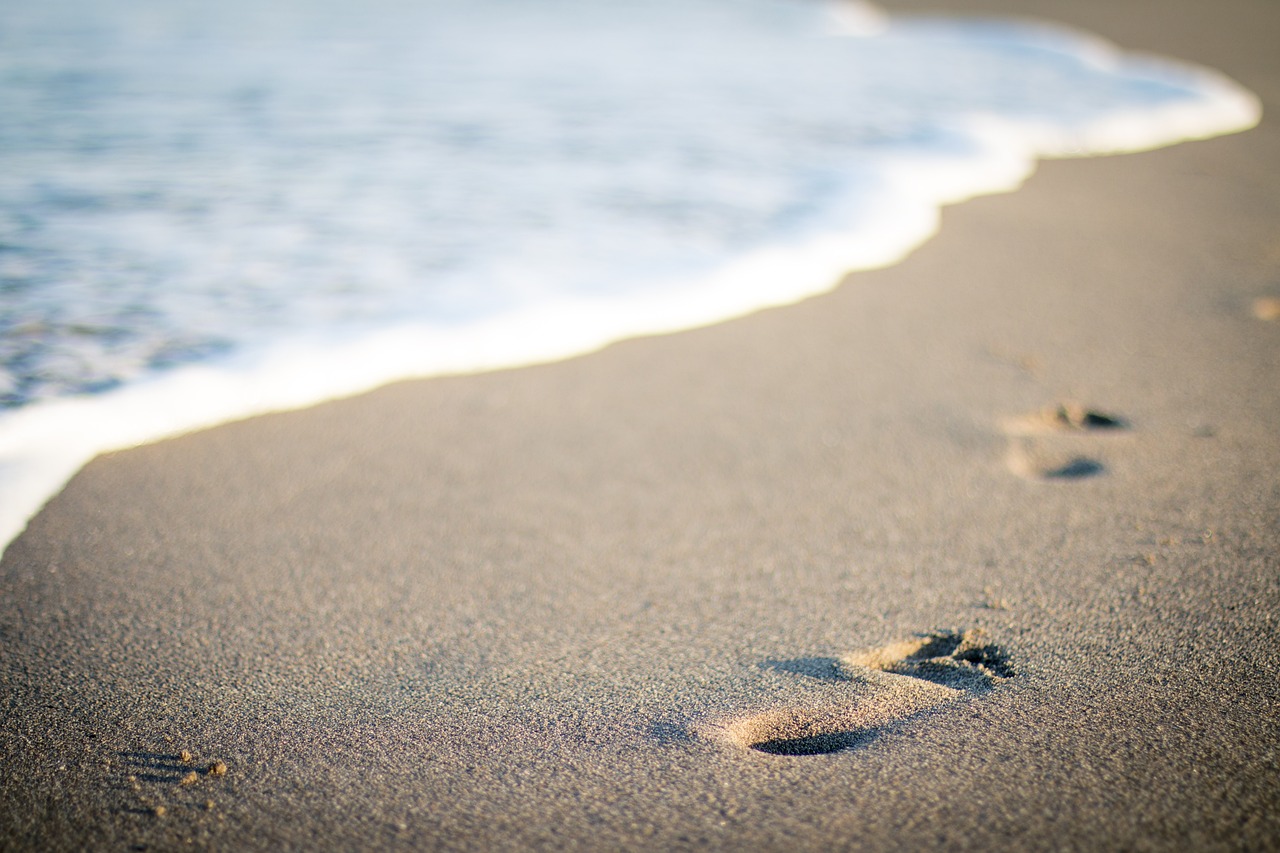10 Tips To Take the First Step in Starting Anything New
- Mindset and Habits
- August 27, 2024
- byCharlotte
Taking the first step to learn something new, whether it’s an activity or a skill, can feel daunting. We often get overwhelmed by the sheer number of possibilities. This is especially true for multipotentialites. It’s no coincidence we compare feeling overwhelmed to climbing a mountain. When you look up at the summit, it can seem unreachable, which often discourages hikers. But those who take on the challenge usually find the journey rewarding, even if they don’t reach the highest peak. Many trails stop halfway up the mountain and are still incredible to do!
The hardest part is often taking that first step. It’s like anything in life—once you get the hang of it, things become clearer. Going back to the mountain analogy, once you commit to the climb, you usually don’t regret it. In fact, it often gets easier as you find your pace and rhythm. The key is preparation, so you don’t feel discouraged. If you’re looking for ways to take that first step in learning something new, you’re in the right place! Here are 10 tips to help you clear your mind and figure out where to start.
10 Tips To Take the First Step
1. Find Your Passion
Finding your passion is different for everyone. Maybe you’ve always felt drawn to a particular activity, tried it by chance one day and loved it, or read about it and slowly grew interested until you finally gave it a try. The path to discovering what truly excites you is unique and personal. The good news? We all have at least one passion, and if we haven’t found it yet, it’s out there waiting for us!
As a kid, I was always drawn to the ocean and wanted to learn to surf. So, when I was old enough to live by the ocean, it was natural for me to start surfing and diving. But what about those of us who weren’t drawn to something specific early on? There are practical tips and exercises to get to know yourself better and proactively seek out your interests. I explore these further in another blog. It’s filled with tools to help you identify what you’d like to try next!
2. Set Clear Goals

Setting clear goals helps you understand what you expect from this new endeavor and keeps you consistent. It sets you up for success. Don’t get me wrong, a goal can be as simple as, “I want to learn enough Italian to get by in basic conversations before my trip to Rome in six months,” or, “I want to improve my back flexibility to improve my lower back pain.”
The point is, setting clear objectives doesn’t mean you’re aiming to be an expert—it just ensures you’re giving it a proper shot by knowing what you want from it. Goals can also evolve. When I started surfing, my goal was to ride a shortboard instead of a longboard because I liked the style better. But striving for this goal started taking the fun out of surfing. So I changed my goal to, “I want to surf in gentle waves where I feel safe and focus more on fun than performance.” Now, I often surf on longboards, and that’s fine! Setting goals helps us understand ourselves better, and sometimes what we think we want might not align with what we truly enjoy.
Luckily, there are plenty of tools to help you organize and visualize your goals. I’ve enjoyed using Notion lately—it’s perfect for planning and breaking down goals into smaller tasks, which is especially useful if, like me, you have a tendency to want to do everything at once.
3. Start Small
No one starts a marathon without first enjoying shorter runs. The same goes for any new skill or activity. Having ambitious goals is great, but what’s ambitious for a beginner doesn’t need to match what’s ambitious for someone with experience.
When I realized swimming was the only endurance activity I liked and was decent at, I committed to swimming at least three times a week. Everyone said I should swim at least a kilometer per session, but I knew that wasn’t going to happen for a while. So, my first step was to break it down. I started by swimming breaststroke, which felt less tiring, and swam as many laps as I could before taking a break. My first sessions were maybe 500 meters with three breaks. Slowly, I worked on my breathing until I could swim closer to a kilometer. After a year of gradual progress, I now swim between 1.5 and 2 kilometers per session with only one short break. Baby steps are a powerful concept in life. Whatever you work on, it will pay off eventually.
4. Be Disciplined!

You know the saying: motivation is 10% of the job; discipline is 90%. Motivation comes and goes. There’s always an excuse to skip practice or class. It’s too cold, too hot, too far away, or the teacher is too tough. If you start listening to these excuses, you’ll give up before you know it. In another blog post, I mention how we, as humans, tend to prefer familiarity over novelty. If your brain gets a chance to lure you back to “safety” by sending fear signals—like fear of being judged or not being good enough—it will! Maddie Rose explains perfectly how you should never rely on motivation.
That’s where discipline comes in. James Cear explains that “on average, it takes more than 2 months before a new behavior becomes automatic — 66 days to be exact“. Not much time in the grand scheme of things, right?
5. Build a Support System
Surrounding yourself with the right people when you’re a beginner is crucial. This advice is often given in business, but it applies to everything. Surround yourself with people who elevate your spirit, make you feel like you belong, and encourage you. That will make taking your first step so much easier.
Building a support system involves several layers. Find a community where you feel comfortable, and seek out mentors who will cheer you on. The community you join speaks volumes about the activity you’re pursuing. For example, when I started surfing, I was surprised to find that some parts of the surf community were territorial and aggressive. Fortunately, not everyone was like that! It took me time to find welcoming groups who helped beginners. The right community can make even a tough activity more enjoyable.
Look for mentors who inspire you, and show them you’re serious. People who believe in us when we don’t believe in ourselves yet are invaluable. My dance teacher once said, “I don’t want anyone to be left behind.” She decided to help me go as far as I could, as long as I wanted it enough. If you’re curious about this topic, I wrote an article about how to find mentors.
6. Embrace a Beginner's Mindset

This tip is essential to The Bold Beginner’s mission: approach everything with an open mind and a willingness to make mistakes. True growth comes from listening to those who know more, rather than assuming you’ve already got it figured out—and this holds true in every aspect of life. I recently read Kate Murphy’s You’re Not Listening: What You’re Missing and Why It Matters, which emphasizes the power of listening over talking. It highlights how there’s a mine of insights to be gained from listening to knowledgeable people rather than focusing on what you already know. As you embrace a beginner’s mindset, challenge yourself to listen more—there’s always more to learn when you stop assuming you have all the answers. It’s a principle I try to apply to every area of my life, even though it’s still work in progress.
Whenever you take your first step into something new or meet someone from whom you can learn, assume that the most value lies in what you don’t know. Life would be boring if we couldn’t constantly be amazed by everything there is to learn!
7. Visualize Success
I’m no expert in manifestation, but every successful person agrees on one thing: believing in yourself is essential to success. You need to be convinced you’ll succeed before anyone else does.
If you’re not there yet, try writing down reasons why you will succeed. This doesn’t have to be complicated. Here’s an example:
“Why will I succeed in learning to sing?
- I used to sing in tune as a kid, so it’s still in me somewhere.
- I’m the most persistent person I know.
- I practice diligently.
- I enjoy singing, even if it’s off-key.
- I’m good at public speaking, so why not public singing?”
This exercise takes honesty and self-reflection, but it can do wonders for your mindset.
8. Focus on the Process, Not Just the Outcome
Notice I didn’t say, “Enjoy the journey, not the destination.” While well-intentioned, that advice is as helpful as telling someone scared of heights to “just bungee jump.” The word “just” can be dismissive, and trying to make something sound easy doesn’t make it easier.
I’m not saying the process will always be enjoyable at all times—it won’t. But focusing on the process rather than the outcome removes the guilt of not always having fun. You won’t always enjoy it, and that’s okay. Staying focused on the process will help you avoid giving up, and remember that your efforts will eventually pay off.
9. Don’t Give Up!
This topic deserves a blog of its own, but I’ll touch on it briefly because it’s so important. Persistence can unlock powerful things in your life. People often emphasize the “just have fun” aspect of being a beginner, but it’s not always easy to have fun when you’re an ultra-beginner and don’t know how.
When I started dance classes, my rhythm and coordination were terrible. My teacher often had to cut the choreography short because I couldn’t keep up. It was hard to “just have fun” when I couldn’t even follow the moves! But I knew I loved what I was aiming for, and I focused on the process of learning one step at a time.
Now, after a couple of years, I’m where my teachers expected me to be when I started. And now, I can have fun, even when my dance doesn’t look perfect. This is the power of persistence and commitment. You may feel like you’ll never get there, but consistency and clear goals will help you push through plateaus and keep progressing. If you persist and never quit, you simply cannot lose. I have a lot more to say about this—feel free to explore more in this article.
10. Take Action Now!
Again, I’m not telling you to “just do it now!” I know it’s not always easy to start something new. What I am saying is that waiting for the perfect time won’t make it any easier. The truth is, we all have time and resources to try new things right now. Not all new things, but definitely some new things. Many people claim they don’t have time, and while that might be true at certain moments in our lives, those periods are usually not as long as we make them out to be.
Here’s how I like to think about it: If I have time to watch a movie in the evening or scroll on social media for even 15 minutes, then I have time to learn something new instead. Remember, you don’t need to dive in headfirst immediately. Just 15 to 30 minutes of learning each day can take you a long way.
In the words of Kate Swoboda in her podcast Take Action Now: No More Waiting: “The one commonality we have is that we all die […] so we just don’t have the time to mess around”.
So now’s the time to decide what you’ll take your first step into next!
And if you’ve got any stories to share, or would love to read more blogs on a specific topic, don’t hesitate to drop a comment or reach out. I’d love to hear from you!
More Related Blog

You Don’t Need Permission to Begin
Ever feel like you’re waiting for permission to start something new? Maybe it’s a creative idea, a career shift, or...
Read More
How to Overcome Analysis Paralysis and Imposter Syndrome
Struggling with overthinking, perfectionism, or burnout? Learn two simple, science-backed tools to break free from analysis paralysis and start taking...
Read More
Is Kindness the Key to Your Growth? A Lifeline For Beginners
Kindness is bold, despite what society tells us. It helps beginners grow, connect, and feel safe to overcome their fears...
Read More
10 Unconventional Lessons I’ve Learned Failing A Business
Discover the unconventional lessons, hard-won wisdom, and strategies I learned from starting—and failing—my startup as a female entrepreneur.
Read More
Feeling Like a Failure: Lessons Learned to Bounce Back
Failure doesn’t define you—it teaches you. Bounce back stronger with lessons learned, rebuild confidence, and turn self-doubt into resilience!
Read More
5 Small Habits That Will Change Your Life
Small habits can be life-changing! Forget overwhelming resolutions—lasting change starts with simple, actionable steps. Ready to transform your life?
Read More
How To Overcome Imposter Syndrome as a Multipotentialite
How To Overcome Imposter Syndrome as a Multipotentialite Mindset and HabitsSeptember 23, 2024byCharlotte Do you sometimes feel like you’re constantly...
Read More
7 Strategies To Overcome the Fear of Judgment
7 Strategies To Overcome the Fear of Judgment When Starting Something New Mindset and HabitsAugust 28, 2024byCharlotte Ever feel paralyzed...
Read More
10 Tips To Take the First Step in Starting Anything New
The first step is always the hardest part of any journey but it’s also the most powerful ✨. In this...
Read More
7 Ways Our Beginner’s Fear Holds Us Back
Starting something new as an adult can feel exciting—but let’s be honest, it’s also scary. From impostor syndrome to the...
Read More